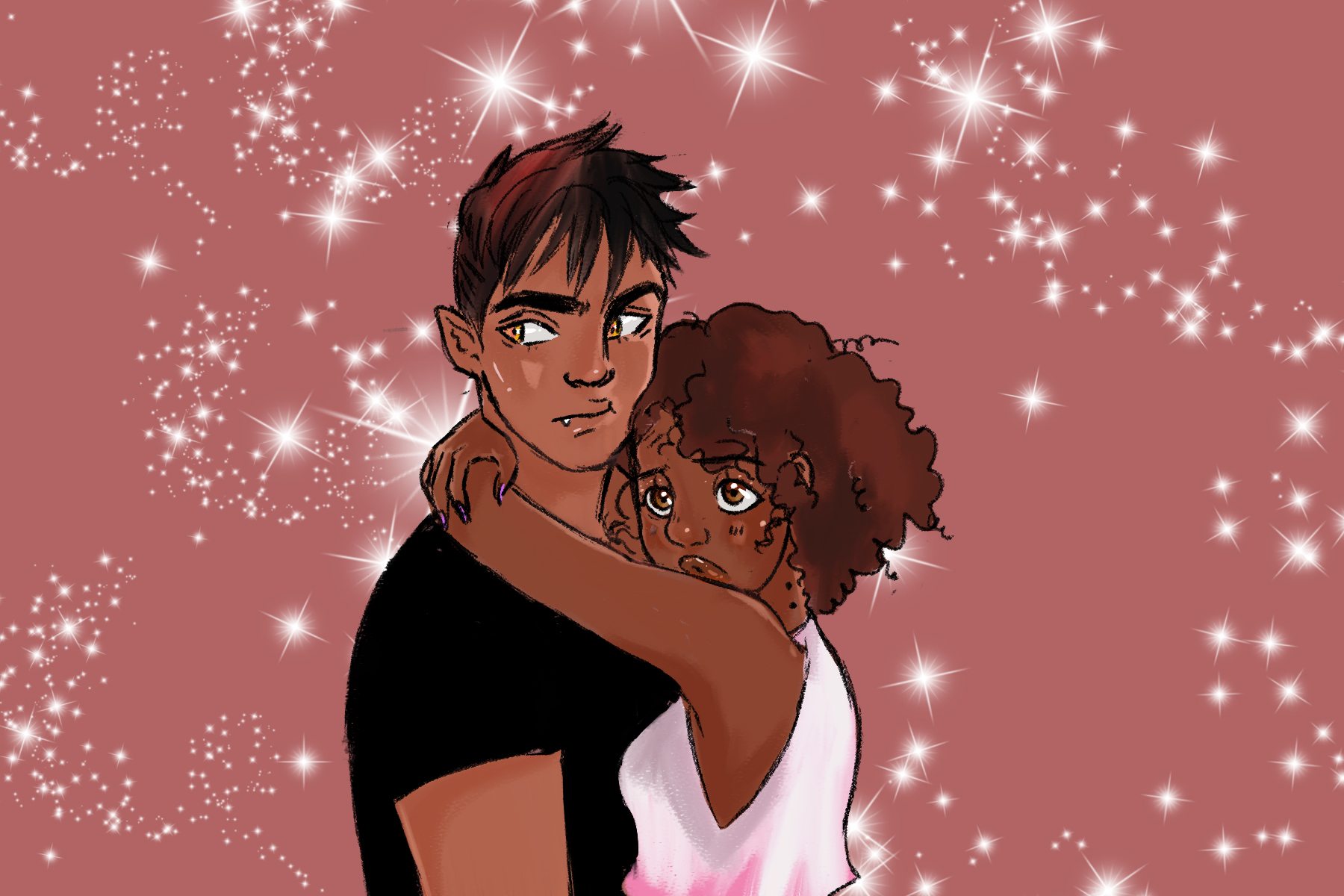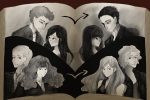One-shot, lemon, lime, self-insert and AU are just a few examples of fan fiction jargon. Between the “shipping” of characters and manifestation of fans’ outlandish “headcanons,” fan fiction is a tool that allows enthusiasts to express their wildest fantasies. In our modern context, the phrase “fan fiction” is widely considered as cringe-inducing. Someone who is not familiar with this writing genre probably associates it with poorly written prose and plotlines.
However, anyone who has dabbled in the genre understands that, while a portion of the works are clearly written by a beginner who has just opened a Word document for the first time, a larger chunk of the stories show endless effort and practice in developing new and creative approaches to predetermined characters. Oftentimes, readers will find that their dream scenario for their favorite character is shared by a greater community of readers and writers. In this way, fan fiction not only serves as a creative outlet, but it also is a tool for community-building within fandoms. With the genre’s increasing popularity, it is time for us all to stop giving it such a hard time.
So, what exactly qualifies as fan fiction and where did it come from? The Oxford English Dictionary drafted fan fiction’s definition in 2004. It reads, “fiction, usually fantasy or science fiction, written by a fan rather than a professional author, esp. that based on already-existing characters from a television series, book, film, etc.” Some of the earliest pieces first emerged in the 1960s with the unprecedented popularity of the TV show “Star Trek.” Joan Marie Verba documents the impact of “Star Trek” fans on fandoms and fan fiction culture in her book, “Boldy Writing: A Trekker Fan and Zine History.” The early fan fiction displayed in these “fanzines” used the same beloved characters from the Starship Enterprise and inserted them into fans’ stories. Fan fiction gradually began to expand outside of the “Star Trek” universe and into other popular fandoms like “Star Wars.” Much of these early fan fiction works continued to be featured in zines well into the 1990s.
#StarTrekPicard's Michael Chabon talks fandom, fanfiction, and his unique path to a career in writing 💫 #StarTrek https://t.co/IWNlyIz8jP
— Star Trek (@StarTrek) October 17, 2019
Since the 1960s, the community has grown astronomically. This growth is largely due to the advent of the internet and writing-sharing websites like Wattpad, FanFiction.net and Archive of Our Own to name a few. These websites now serve as the epicenter of online fan fiction, each with robust user bases. Wattpad boasts over 80 million registered users while FanFiction.net features millions of stories in over 40 different languages. Other websites like Tumblr also feature fan art and fiction communities; however, they are merely a subset of the website.
Fan fiction’s popularity is best demonstrated by traditional media’s attention to the genre. The 2015 box office hit “50 Shades of Grey” was adapted from a 2011 novel of the same name by E. L. James. After having seen the movie “Twilight,” Erika Leonard, who goes by the pen name of E. L. James, was struck by the vampy universe and immediately read the entire series by Stephanie Meyers. In August 2009, Leonard sat down to write a response to “Twilight,” and what would eventually become the “50 Shades of Grey” trilogy. Leonard was a novice writer; however, that did not deter her from sitting down and writing out her BDSM-themed, vampire fan fiction. As is the case for many beginners, fan fiction was a safe space for Leonard to explore her creativity through writing.
FANFICTION IS A LEGITIMATE LITERARY GENRE THAT DESERVES JUST AS MUCH RESPECT AS ORIGINAL FICTION!!!
— Georgina Kiersten (@ingloriousgigi) November 3, 2019
This past year, another film was released whose screenplay was adapted from fan fiction. “After” is a romantic drama inspired by Anna Todd’s Wattpad series under the same name. Todd’s works are inspired by the band One Direction, particularly Harry Styles. The main character Tessa’s main love interest is directly inspired by the British singer. Todd’s series on Wattpad consists of four installments of “After” including a prequel and boasts 1.8 billion total views, making the books some of the most read on the entire site. Despite critical reviews of the film, fans of both the series and the band were much more sympathetic. Rotten Tomatoes gives “After” a critical score of 17% while the audience score is 72%. While maybe this is not the best demonstration the genre’s quality, it does demonstrate its appeal. There is a sense of camaraderie in fandoms in general, but that sense of togetherness is only expanded upon through fan fiction. Not only are you seeing a film as a community, it is a film based on the work of a fellow fan.
The habitual belittlement of fan fiction is not unrelated to a similar societal disdain for the interests of the teenage girl. A study conducted in 2010 investigated the demographics of FanFiction.net users. The study largely relied on the information that users provided themselves in their profiles. It was determined that 78% of those who disclosed their gender were female and that the vast majority of users were also teenagers. Similarly to boy bands, fads and other things considered “too girly,” it falls under the category of things society deems to be unsophisticated and childish. This is of course a larger question that we must consider outside of the realm of fan works; however, it is worth noting the connection.
https://twitter.com/_10ia/status/1189640276031217665
E. L. James and Anna Todd are just two examples of successful fan fiction writers. If these two fans had not been inspired and given the space to hone their craft, then we would not have cultural artifacts like “50 Shades of Grey” and “After.” A huge component of internet culture is remixing and repurposing content — fan fiction is just another extension of this culture. With an unquantifiable amount of source material available, this process of remix has endless artistic possibilities. So for the experimental writer, it is a natural progression. As noted before, online websites with user-friendly communities are a perfect space for developing one’s artistic practice. Novice creativity and imagination should not be discouraged just for the sake of avoiding “cringiness.” Failure is part of improvement. So, with this mind, it is high time that we all stop shaming fan fiction readers and writers. And if you have not yet checked out fan fiction of your favorite TV show, book, movie or whatever else, you might just consider it and learn something new.
















